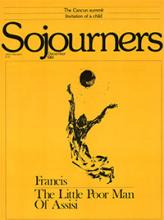Beauty hurts, especially for those who have once seen how beautiful it really is. Ugliness irritates, but only for those who have never seen. When the great seers arise, their lives always confuse the rest of us. They seem to change all the rules, look in different directions for joy, and find love in the most unsuspected places.
Those who have seen the full extent of beauty set our minds awhirl; we take centuries to refind our bearings, and meanwhile, chase blinking-eyed after them. Such a seer was Francesco Bernardone (1182-1226), and such a people is the 800 years of admiring and unsettled humanity that cannot forget what he saw and what he did with his one little life. His beauty and his seeing still hurt us.
More than any other follower of Christ, Francis of Assisi has been called a "second Christ." More lives have been written of him than of any other person except Jesus himself. He has been the most painted non-biblical character in history, and the usually cautious church declared him a saint only four years after his death. G.K. Chesterton called him "the world's one quite sincere democrat," and the "first hero of humanism." Lenin spoke envyingly of him shortly before he died, and Sir Kenneth Clark called him Europe's greatest religious genius. Even in his own lifetime he exerted a strange attractiveness. Perhaps it was the undeniable magnetism that occurs when truth and folly stand together:
Read the Full Article

